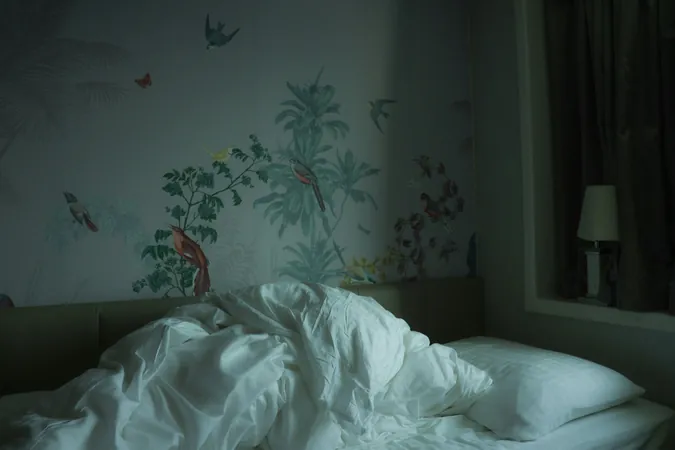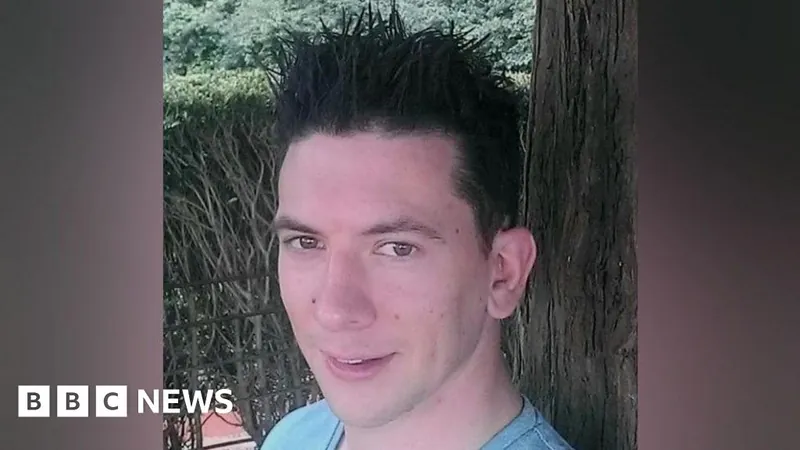
Shocking Link Between Teen Sleep Deprivation and Gun Violence Exposed!
2025-09-22
Author: Sarah
Startling Findings from New Research
A groundbreaking study from researchers at Mass General Brigham has revealed a disturbing connection between insufficient sleep and exposure to neighborhood violence among teens. Analyzing data from a staggering 40,000 adolescents, the research, published in the journal SLEEP, shows that teens who get less than the recommended 8 to 10 hours of sleep per night are not only more prone to witnessing violence but also more likely to engage in violent behaviors themselves.
Sleep: A Reflection of Community Safety
Dr. Cornelia Griggs, a pediatric surgeon and one of the study's authors, emphasized the significance of the findings: "This research highlights that sleep is not solely an individual issue, but is heavily influenced by the safety and environment of the communities in which our kids reside." The study analyzed data from the Centers for Disease Control and Prevention's Youth Risk Behavior Survey conducted in 2019, 2021, and 2023.
The Alarming Statistics
The results were eye-opening: over 77% of teens reported insufficient sleep on school nights, with 10% admitting to sleeping four hours or less. Those lacking sufficient sleep were significantly more likely to have witnessed acts of violence—such as stabbings or shootings—in their neighborhoods. The correlation is stark: for teens who get only four hours of sleep, the risk of having experienced violence triples!
Violence and Sleep: A Dangerous Cycle
The research also revealed a chilling connection between insufficient sleep and violent behavior. Teens who reported inadequate sleep were more likely to carry weapons, engage in physical fights, and even skip school due to feeling unsafe. Dr. Rebecca Robbins, a senior author of the study, stated, "This study illuminates how poor sleep can perpetuate cycles of violence, urging us to address community safety alongside sleep health for our youth."
Unexpected Twist: More Sleep Isn’t Always Better!
Interestingly, even the small percentage of teens who managed to sleep beyond the recommended hours (10 or more) showed increased odds of exposure to violence. Dr. Robbins notes, "This might indicate underlying issues such as depression or anxiety, showcasing that simply getting more sleep isn't a guaranteed solution."
What’s Next?
The researchers aim to delve deeper into the repercussions of gun violence on sleep patterns among youth and how a lack of sleep can lead to increased violent behavior. They are committed to advocating for improved community conditions that promote healthier sleep practices and support for those affected by gun violence, recognizing that sleep is critical to the well-being of our future generations.


 Brasil (PT)
Brasil (PT)
 Canada (EN)
Canada (EN)
 Chile (ES)
Chile (ES)
 Česko (CS)
Česko (CS)
 대한민국 (KO)
대한민국 (KO)
 España (ES)
España (ES)
 France (FR)
France (FR)
 Hong Kong (EN)
Hong Kong (EN)
 Italia (IT)
Italia (IT)
 日本 (JA)
日本 (JA)
 Magyarország (HU)
Magyarország (HU)
 Norge (NO)
Norge (NO)
 Polska (PL)
Polska (PL)
 Schweiz (DE)
Schweiz (DE)
 Singapore (EN)
Singapore (EN)
 Sverige (SV)
Sverige (SV)
 Suomi (FI)
Suomi (FI)
 Türkiye (TR)
Türkiye (TR)
 الإمارات العربية المتحدة (AR)
الإمارات العربية المتحدة (AR)